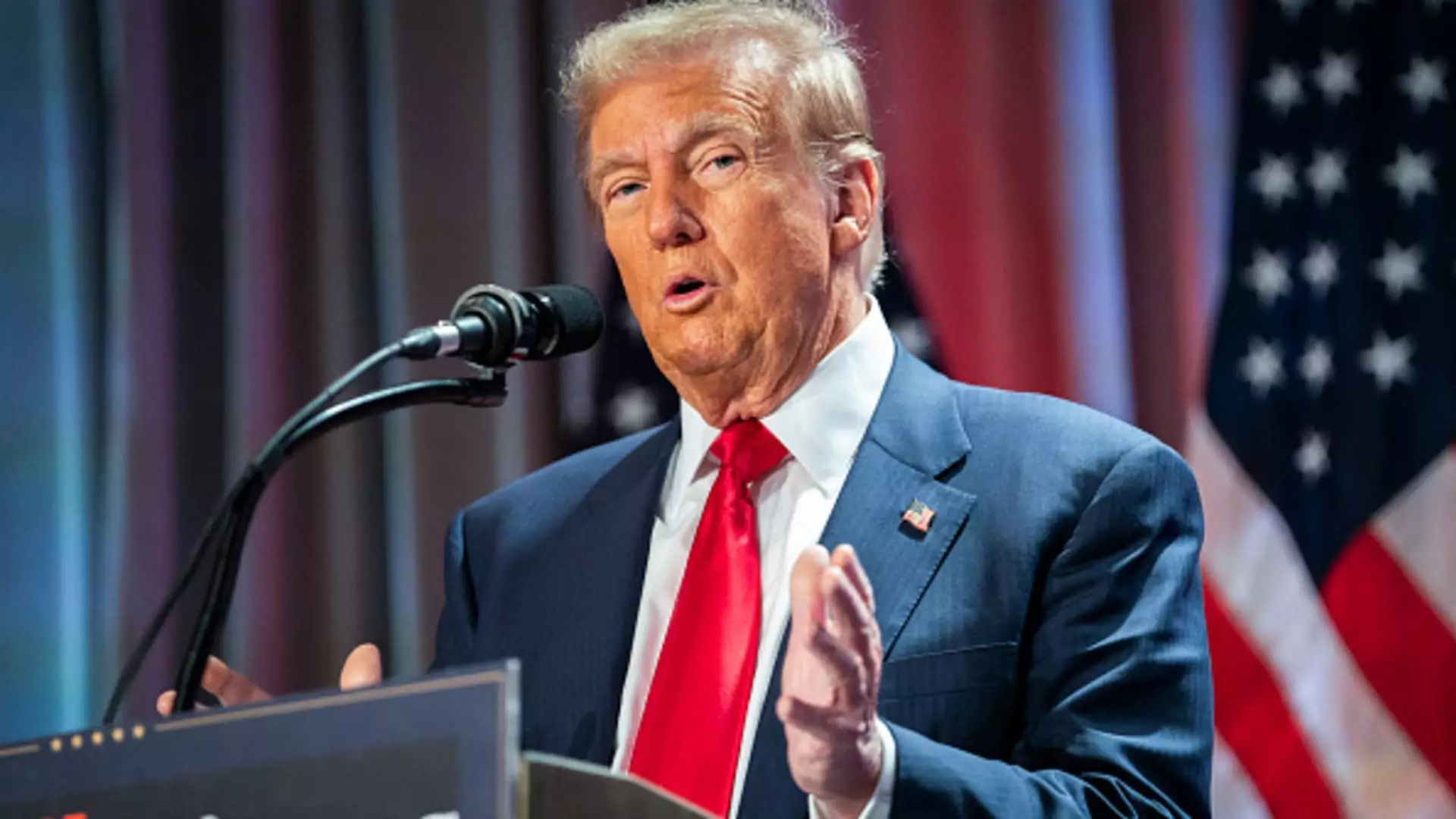As the United States embarks on a new economic chapter with President-elect Donald Trump, investors are bracing themselves for the potential impact of his controversial tariff policies. John Davi, CEO of Astoria Portfolio Advisors, views this inauguration as a pivotal moment, cautioning that the incoming administration’s strategies carry a risk of heightened inflation. Given the current economic climate, careful investment selections are more crucial than ever.
Davi emphasizes the strategic advantages of small-cap industrial stocks over their large-cap counterparts. This preference is not merely anecdotal; it reflects a deeper analysis of how smaller companies tend to benefit from domestic-centric policies, which align with Trump’s pro-growth narrative. His insight draws attention to the Russell 2000 index, a benchmark for small-cap stocks, which has shown strength by rising approximately 4% since the election, indicating bullish sentiment among investors leaning toward this sector.
The Case for Domestic Investments
With his firm managing $1.9 billion in assets, Davi believes that the focus on U.S.-based companies is a prudent strategy during this transitional period. He remains optimistic about the legislative landscape, particularly leading into the midterm elections, which may offer a clearer indication of Trump’s influence on economic policies. “For the next couple of years, maintaining a U.S. overweight position is sensible,” Davi remarked, suggesting that American businesses might thrive under a government keen on domestic growth.
Davi’s strategy also includes distancing from fixed income investments. He raises a critical red flag regarding the implications of an expanding budget deficit, which could lead to unfavorable conditions for bondholders. The bond market has seen the benchmark 10-year Treasury yield escalate by 3% post-election, and Davi advises investors to tread carefully in this arena, given the anticipated volatility.
Navigating the Risks of Inflationary Pressures
The potential for inflation looms large in the discourse surrounding Trump’s economic policies. Davi’s caution on the inflationary repercussions of tariffs is well-placed, as tariffs can elevate production costs and ultimately, consumer prices. For investors, this means that traditional risk assessments must be recalibrated, focusing on how various asset classes respond to potential inflation spikes.
In this context, Davi’s position on small-cap industrials also seems to underlie a strategic insight into how these firms might sustain profitability despite inflationary pressures, as they often have a greater capacity for passing on costs to consumers compared to larger corporations. As they cater more directly to domestic markets, small-cap firms could prove more resilient.
As uncertainties persist in the economic landscape due to Trump’s tariff strategies and the overarching implications of potential inflation, investors must remain vigilant. Strategies that focus on domestic growth while carefully evaluating asset classes like small-cap stocks may offer refuge during these tempestuous times. With astute analysis and an adaptive approach, financial professionals like John Davi set the stage for navigating the complexities of a changing economy, ensuring that their investors are not only protected but positioned for growth.


Leave a Reply